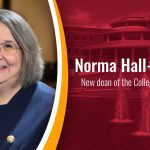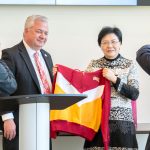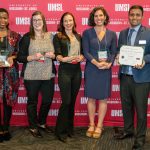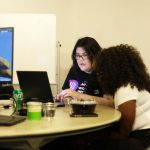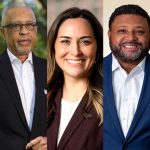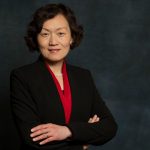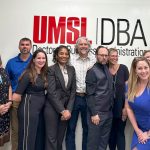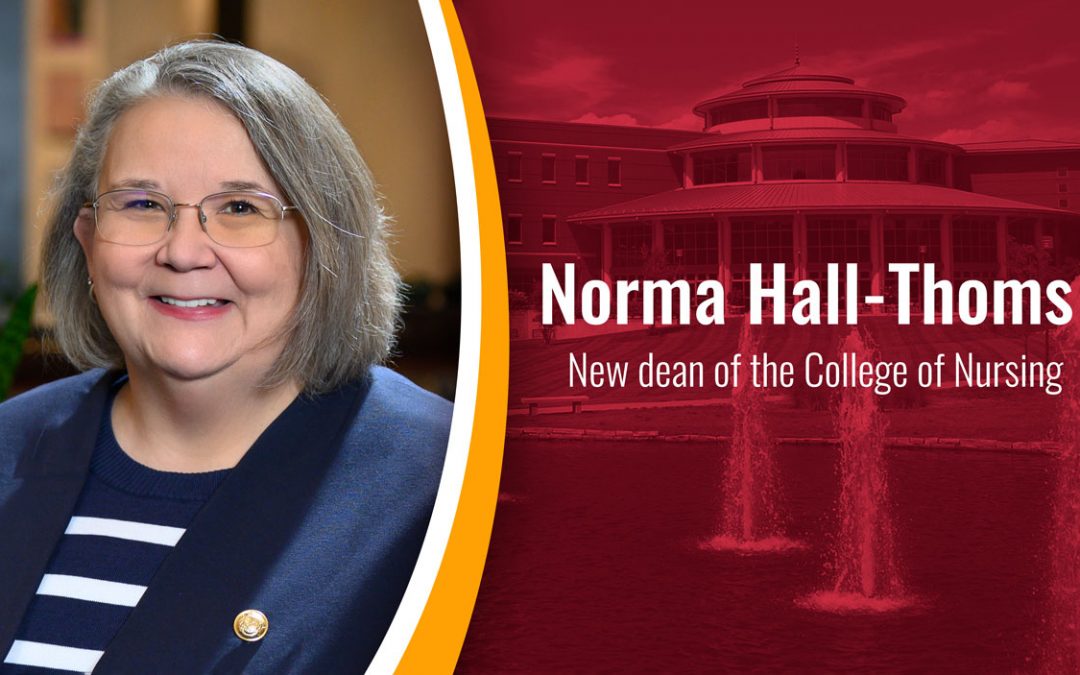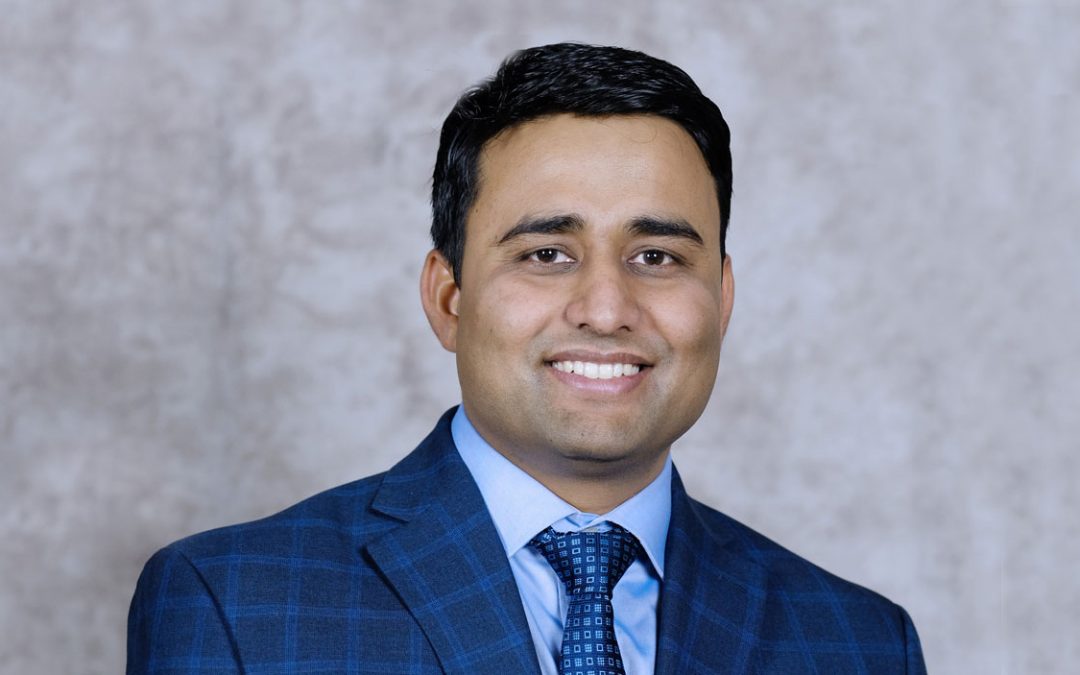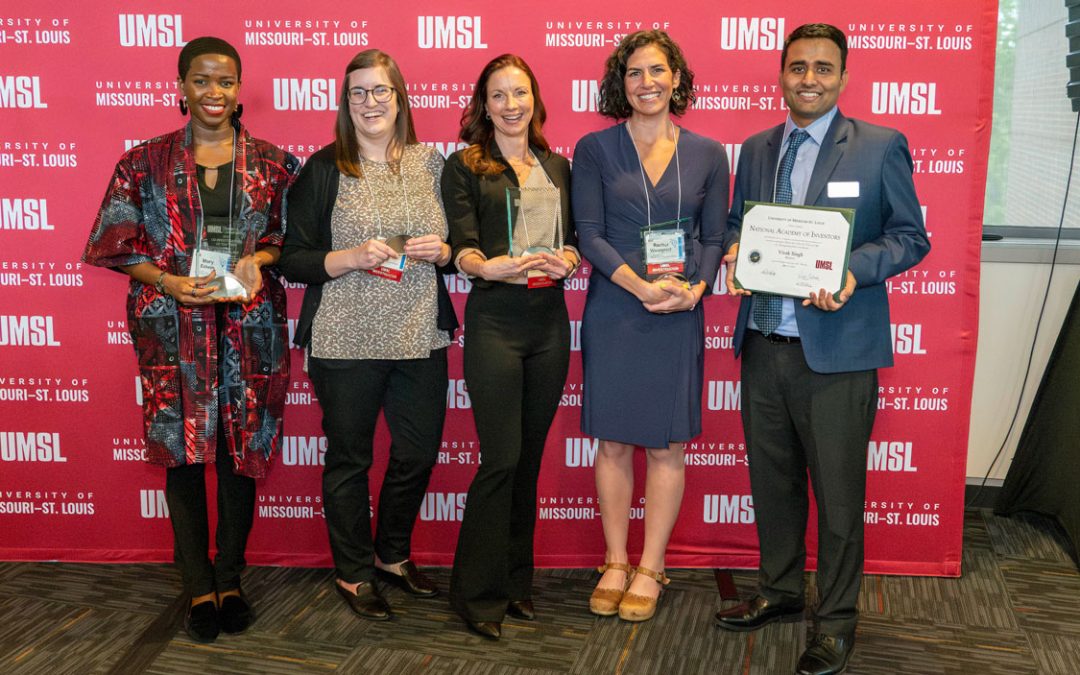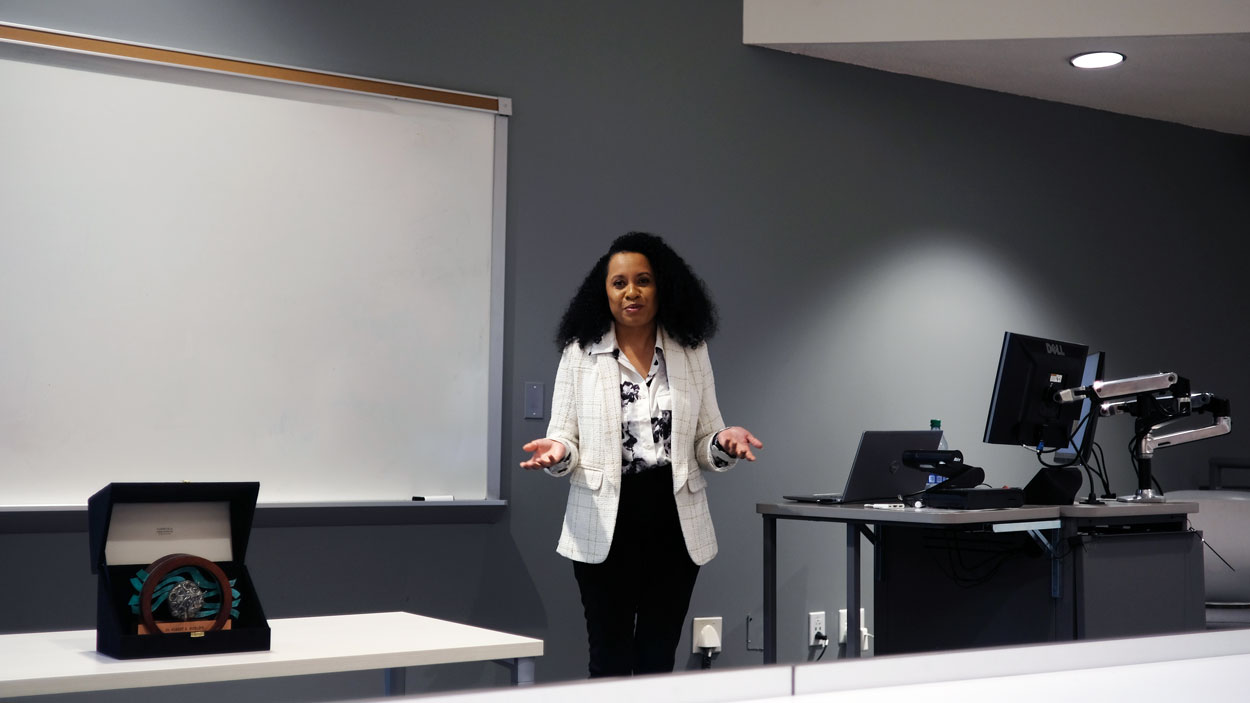
UMSL alum Samoa Asigau discusses her work with bioMérieux, a multinational biotechnology firm, during Friday’s 2024 Margalef Endowed Symposium at Benton Hall. (Photo by Burk Krohe)
Aimee Dunlap welcomed more than 50 University of Missouri–St. Louis alumni, faculty, students and staff to the 2024 Margalef Endowed Symposium Friday afternoon with a little history about the biology lecture series and its namesake.
“The Ramon Margalef Prize in Ecology is awarded annually by the Generalitat de Catalunya, the Government of Catalonia, in honor of Ramon Margalef, who is a founding father of modern ecology,” said Dunlap, associate professor of biology and interim co-director of the Whitney R. Harris World Ecology Center. “It recognizes an exceptional career or discovery in ecology or other environmental sciences. Our very own Bob Ricklefs was awarded this prize in 2015. Of course, Bob is also very much a father of modern ecology work.”
Dunlap reflected on her time working with Ricklefs, a renowned ornithologist who served as a member of the Department of Biology for more than two decades and still serves the university as a Curators’ Distinguished Professor Emeritus. She noted that in addition to being a brilliant researcher, he was also an excellent colleague. His generous spirit is exemplified by the Margalef Endowed Symposium.
After winning the Margalef Prize, Ricklefs and his wife, Susanne Renner, a former professor at UMSL and former director of the Botanische Staatssammlung München, created an endowment for the Department of Biology to bring in an exemplary speaker each year.
In honor of UMSL’s 60th anniversary, the department decided to invite four prominent biology alumni to speak to the crowd at Benton Hall this year.
The featured speakers included Eliot Miller, a Schmidt Science Fellow and researcher at the Cornell Lab of Ornithology; Samoa Asigau, senior scientist at bioMérieux; Christina Baer, research assistant professor at Binghamton University’s First-Year Research Immersion program; and Danielle Lee, associate professor of biology at Southern Illinois University Edwardsville. The event also included a poster session and reception after the lecture.
Miller presented first on the topic of competitive interactions and dominance hierarchies of North American feeder birds. He explained that observing what happens at feeders can offer a window into what plays out regularly in natural habitats such as fields and woods.
“Where are these real-life interactions taking place?” he asked the audience. “Well, predictably, over concentrated resources – flowers, seeds, the tips of branches and trunks for caterpillars, forage and hive. If a bird loses an interaction like this, it really may have consequences. It may end up having to forage at some place where it’s going to get picked off by a hawk or it might not eat that day. I just want to drive home why I think this matters.”
Miller also explained the important role citizen scientists – nonprofessional researchers – played in his study on birdfeeder interactions funded by the National Science Foundation. He worked with Project FeederWatch to have birdwatchers from across the U.S. submit observations on aggressive interactions between birds at feeders.
“I think that citizen scientists are amazing to partner with on this stuff,” he said. “Maybe you shouldn’t ask them to scroll through 1 million blood smears and find your plasmodium. But if you ask them to judge a bird fight, it can be really helpful and lead to some really great research. So, think carefully about what you ask them to do, and these people can really help your research projects.”
Asigau spoke next about her work with bioMérieux, a multinational biotechnology firm. In her role with the company, Asigau has helped lead the xPro Program to develop custom molecular diagnostics tests to meet the emerging needs of the food industry.
She initially imagined going into academia after graduation but ended up building a successful career in industrial science thanks in part to her training at UMSL. She encouraged the students in the audience to explore all of their options, including the private sector.
“The education at UMSL prepares you for that,” Asigau said. “You’re able to pivot; you’re able to learn a system, and you’re able to deliver results.”
Baer discussed her role with the innovative First-Year Research Immersion program at Binghamton and her research on insect niche construction, ecosystem engineering and thermal tolerance.
Finally, Lee closed the symposium with a talk about the history of nuisance rodents and her ongoing research on them. While nuisance rodents’ undesirable reputation is earned, Lee noted that they are also incredibly adaptable and thrive in urban, peri-urban and natural environments. Because of this resilience and rodents’ continued proximity to humans, she argued humans must prioritize studying rodents to propose effective institutional solutions to the problems they create.
To be as effective as possible in that endeavor, Lee advocated for engaging community stakeholders in scientific research. One of the many ways she has done that is through Urban Biomonitoring, an environmental assessment program with local high school students supported by a National Geographic grant.
“Part of why I focus on nearby nature with community stakeholders is these organic mentoring opportunities that can cultivate between these near-peer networks – students and community, citizen science and, especially outside the high school context, community action groups,” she said. “It has also given me an amazing number of opportunities to engage colleagues across disciplines such as K-12 education, youth services, public health, biomedicine, sociology and urban and city planning.”


